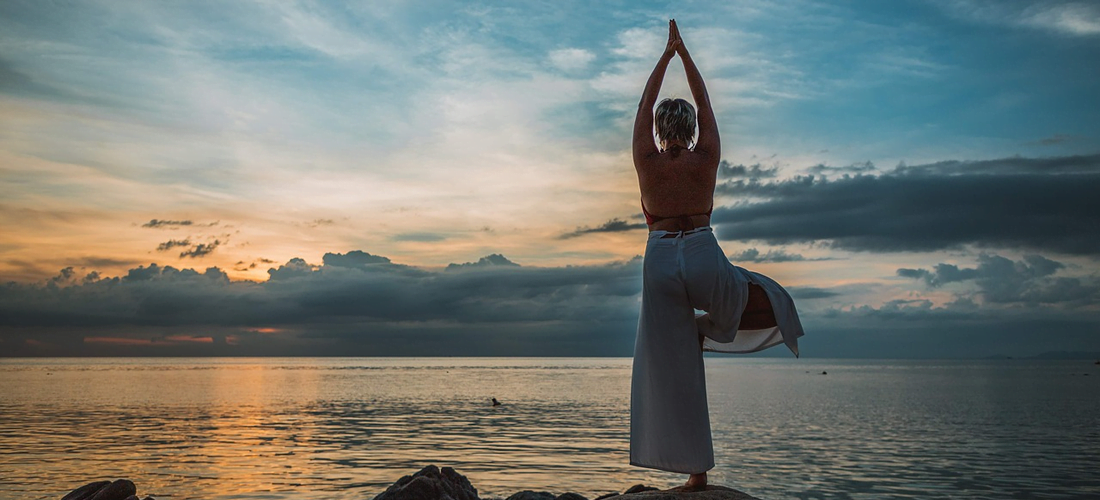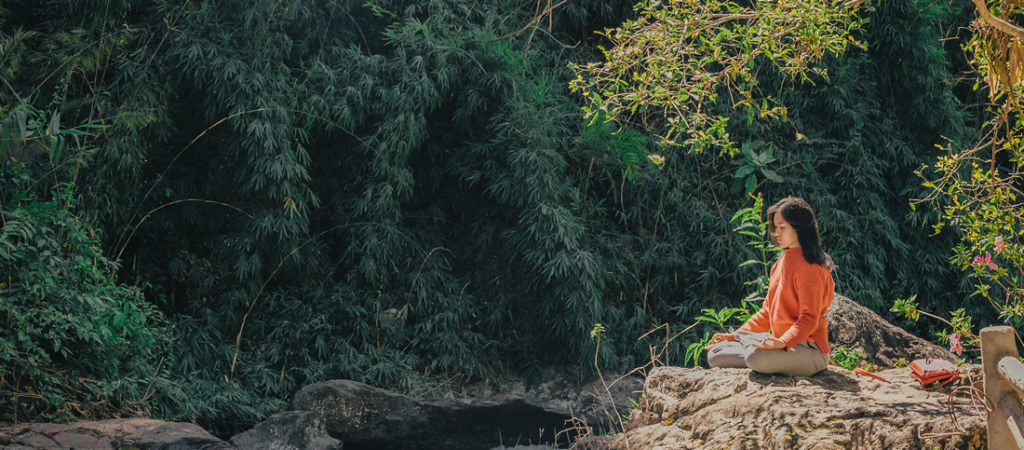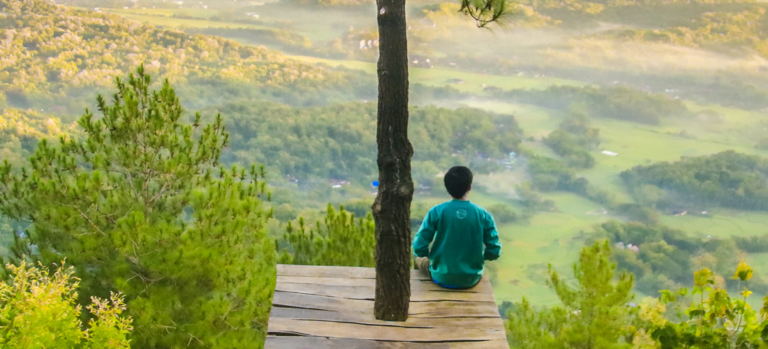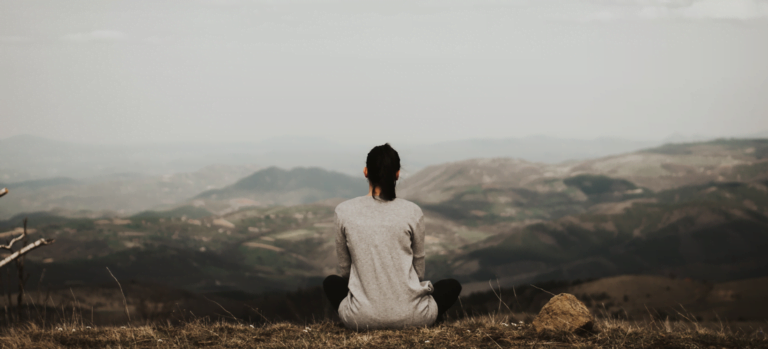Solitude and nature retreats allows us to take a break from the hustle and bustle of life. It can be an incredibly rewarding experience. Retreating into nature provides us with time to reflect, reset and recharge. It allows us to step away from our everyday lives. And connect more deeply with ourselves and the natural world around us.
In this blog post, we’ll explore why taking solitude retreats in nature is so beneficial for both body and mind. We’ll offer tips on how to make the most out of your own personal nature retreats. So if you’re looking for some much-needed rejuvenation through reconnecting with yourself and your surroundings, read on!
The Healing Power of Nature
Studies have shown that spending time in nature has a wide range of therapeutic effects. A pioneering study showed that patients recovering from surgery who had a view of nature from their hospital room had shorter hospital stays. Patients also took fewer pain medications, and experienced fewer postoperative complications compared to patients with views of buildings. Another study published in the Journal of Environmental Psychology proposes the Attention Restoration Theory (ART). This suggests that exposure to nature can improve focus. It also improves cognitive functioning by providing a reprieve from mentally taxing tasks. Thus, exposure to nature promotes restoration and reduces stress.
In addition, there are studies that show the restorative effects of spending time in a garden or even gardening itself. Nature also boosts cognitive function according to this study, as well as this one. Another research shows that green exercise, which is any physical activity that takes place in a natural environment, can improve physical and mental wellbeing.
Finally, this large-scale study found that spending at least 120 minutes per week in nature is associated with higher levels of well-being and health, further supporting the importance of nature exposure for overall well-being.
Finding the Perfect Nature Retreat
Finding the perfect nature retreat can be a challenging task. However, with careful research and planning, it is possible to find a place that offers peace and tranquility.
1. Define Your Objectives
Before you start looking for a retreat, determine your goals and what you hope to achieve from the experience. Clarify whether you want a peaceful escape, self-reflection, a digital detox, or simply a chance to reconnect with nature.
2. Choose the Right Location
Next, consider the type of environment you are looking for. Do you want to be near a lake or river, surrounded by trees and lush vegetation, or near an ocean? Consider your climate preferences as well: will you be looking for warm weather in the summer or a cooler climate during the winter months? Knowing your desired environment can help narrow down your search.
3. Available Activities
Once you have determined your ideal setting, consider what other activities may be available in the area. Are there local hikes and trails to explore? Are there nearby towns or villages offering interesting attractions such as museums or cultural sites? This may play an important factor in choosing a destination.
4. Accommodations
The next step is to decide on lodging options. Research local hotels or inns if you prefer more traditional accommodations. Alternatively, look into camping options if you’re seeking a more rustic getaway experience. Be sure to read reviews from other travelers to get an honest opinion of each option before making a decision.
5. Safety
Finally, consider any potential risks that could come with traveling alone in remote areas. Make sure all contact information is updated in case of emergencies. Carry necessary supplies such as food, water, maps, first-aid kits; and let someone close know where you plan on going and when they should expect your return home.
By taking these steps into account when researching potential nature retreats for solitude travelers can ensure their journey will go smoothly without incident. This provides them with the perfect opportunity for peaceful reflection away from home.
The Importance of Disconnecting from Technology
Nature retreats to find solitude are ideal for stepping away from our devices and gadgets for a period of time. During these times of disconnection, we have the opportunity to relax, unwind, and allow ourselves to become more mindful about who we are and what we want out of life. Without technology constantly vying for our attention, we can take control over our own thoughts. We gain clarity of mind that could lead to new insights into personal growth or professional development goals.
Being able to disconnect from technology is also beneficial for reducing stress levels. Constant input from digital sources can be overwhelming. It leads us into unhealthy thought patterns such as multitasking. We ignore our own needs in order to stay connected with the world around us. Taking a break from this stimulus helps us recenter ourselves mentally. It allows ourselves to better understand how technology affects us positively or negatively.
Additionally, retreating from technology provides a much needed opportunity for self-reflection. That is not possible when bombarded with incoming digital messages all day long. We can fully focus on our personal growth without any outside interference or agendas. By engaging in activities such as journaling or meditation which encourage honest reflection about who we are now and where we want to go next in life.
Considering Guided vs. Solo Retreats: Pros and Cons
When deciding between a guided or solo nature retreat it is important to think through your goals for the trip and determine if having a structured program or complete control is best suited for you. Whichever option you choose, both types of retreats can offer transformative and enriching experiences in nature.
Pros of Guided Nature Retreats
- Expert Guidance: Guided retreats are led by experienced facilitators or experts who can provide valuable insights, knowledge, and techniques related to the retreat’s theme or activities. They can enhance your understanding and appreciation of nature and self-discovery.
- Structured Itinerary: Guided retreats typically have a pre-planned itinerary with organized activities, workshops, and guided meditations. This structure can be beneficial for those who prefer a well-organized and purposeful retreat experience.
- Group Support: Being part of a group allows for shared experiences and emotional support. The camaraderie and connection with others can create a sense of belonging and foster new friendships.
- Safety and Security: In guided retreats, there is a sense of safety and security, knowing that there are knowledgeable guides to handle any unforeseen situations or emergencies.
- Opportunities for Growth: Guided retreats often challenge participants to step out of their comfort zones and explore new perspectives. This can lead to personal growth and self-awareness.
Cons of Guided Nature Retreats
- Limited Flexibility: Guided retreats follow a set schedule and itinerary, leaving little room for personal exploration and spontaneous experiences.
- Less Solitude: Guided nature retreats involve group activities, which may reduce the amount of time spent in solitude and personal reflection.
- Dependency on Guides: Participants may become overly reliant on the facilitators for their experiences, potentially hindering independent self-discovery.
- Social Dynamics: Group dynamics can impact the retreat experience, and not all participants may connect well with each other or the facilitators.
Pros of Solo Nature Retreats
- Complete Independence: Solo retreats offer the freedom to design your experience according to your preferences and objectives. You can create a schedule that allows for as much solitude and introspection as desired.
- Deeper Connection with Nature: Without distractions from others, solo retreats enable a more profound and uninterrupted connection with nature, fostering a greater sense of peace and mindfulness.
- Introspection and Self-Reflection: Solo nature retreats provide ample time for solitude, introspection, self-reflection, and personal growth, as there are no external influences or distractions.
- Flexibility and Spontaneity: You can adapt your solo retreat as you go, allowing for spontaneous activities and exploration as you feel inspired.
Cons of Solo Nature Retreats
- Lack of Expert Guidance: Without a guide or facilitator, you may miss out on valuable insights and structured activities that could enhance your retreat experience.
- Safety Concerns: Being alone in nature poses some safety risks, especially in remote or unfamiliar locations.
- Limited Social Interaction: Solo retreats can be isolating for some individuals who thrive on social interactions and shared experiences.
- Self-Motivation: Planning and maintaining discipline during a solo retreat requires self-motivation, which may be challenging for some.
Integrating Lessons Learned into Daily Life
Taking time away for a retreat allows us to connect with nature, reflect on our lives, and gain insight into ways we can improve our overall well being. By incorporating some of these practices into our everyday lives, we can maintain a healthier balance between body and mind while leading more fulfilling lives.
One way to integrate the experiences from a nature retreat into daily life is to practice mindful breathing exercises. During a retreat, participants may use meditation or yoga as part of their daily routine. This helps to reduce stress levels and encourages mindful awareness of the present moment. When returning home, we can continue this practice by setting aside five minutes each day to focus on deep breathing exercises and concentrate on any emotions or sensations that arise.
Another valuable lesson from a nature retreat is learning how to cultivate gratitude in our everyday lives. Retreats often put an emphasis on being thankful for what we already have while also allowing us to set intentions for where we want to be in the future. We can bring this attitude back home by consciously expressing thanks for even the smallest of things during our day such as compliments from friends or family members, beautiful weather outside, or simply enjoying something delicious that we eat.
Finally, taking care of ourselves should not stop just because the retreat ends; instead, it should become part of our regular routine at home too. A great way to do this is by making time for regular self-care activities such as getting enough sleep at night, eating nutritious meals throughout the day, exercising regularly, and spending quality time with loved ones. All these activities will help us stay connected with ourselves even when away from the natural environment of a retreat center and help us feel more relaxed and balanced going forward.
Closing Thoughts
Solitude and nature retreats are becoming increasingly popular as a way to de-stress and reconnect with yourself. Whether you’re looking for a weekend getaway or an extended vacation, taking time away from the hustle of everyday life can be incredibly beneficial for your mental health. Nature provides us with peace, relaxation, and clarity that we often don’t experience in our day-to-day lives.
Taking some time out of your busy schedule to spend quality time outdoors will help you find balance, recharge your batteries, gain perspective on what matters most in life – all while enjoying the beauty of nature! So take some time this summer to unplug from technology and plug into the wonders of solitude — it may just turn out to be one of the best decisions you ever make!










